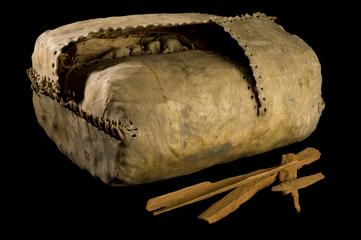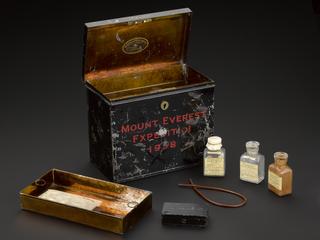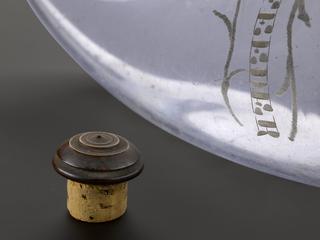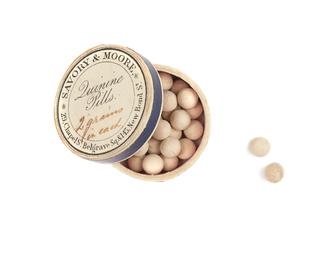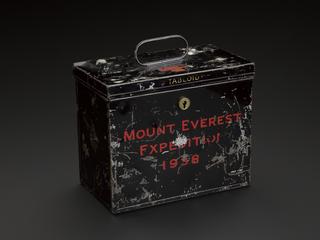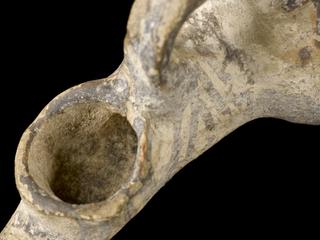
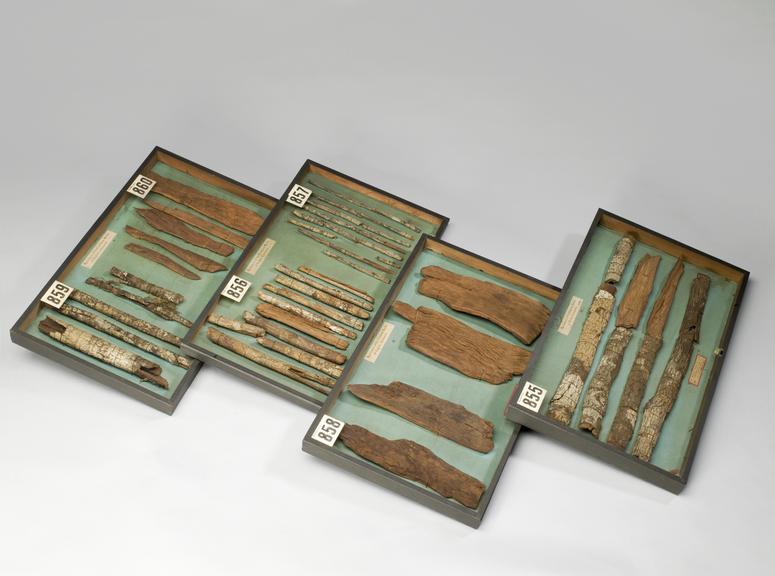
Specimens of cinchona calisaya bark, probably from Peru, in glazed case, of English commerce, Howard collection, 1850-1900
The display case (on the far left) shows samples of a species of cinchona bark known as cinchona calisaya, which comes from Peru. It was commercially grown in large amounts for the anti-malaria treatment quinine. These types were sold by English traders. The display cases are from the Howard Collection and were shown at a Wellcome exhibition in 1930, called the Tercentenary Cinchona Exhibition, celebrating the 300-year anniversary of the therapeutic uses of cinchona bark. The case is shown here with similar examples (A654756, A654757 and A654758).
The collection belonged to John Elliot Howard (1807-83). His father, Luke Howard, had established the first British factory to produce quinine in Stratford, east London, in 1823.
Details
- Category:
- Materia Medica & Pharmacology
- Collection:
- Sir Henry Wellcome's Museum Collection
- Object Number:
- A654755
- Materials:
- case, wood, case, glass and contents, bark
- Measurements:
-
overall: 321 mm x 524 mm x 36 mm, 2.28 kg
- type:
- sample
- credit:
- Howards
